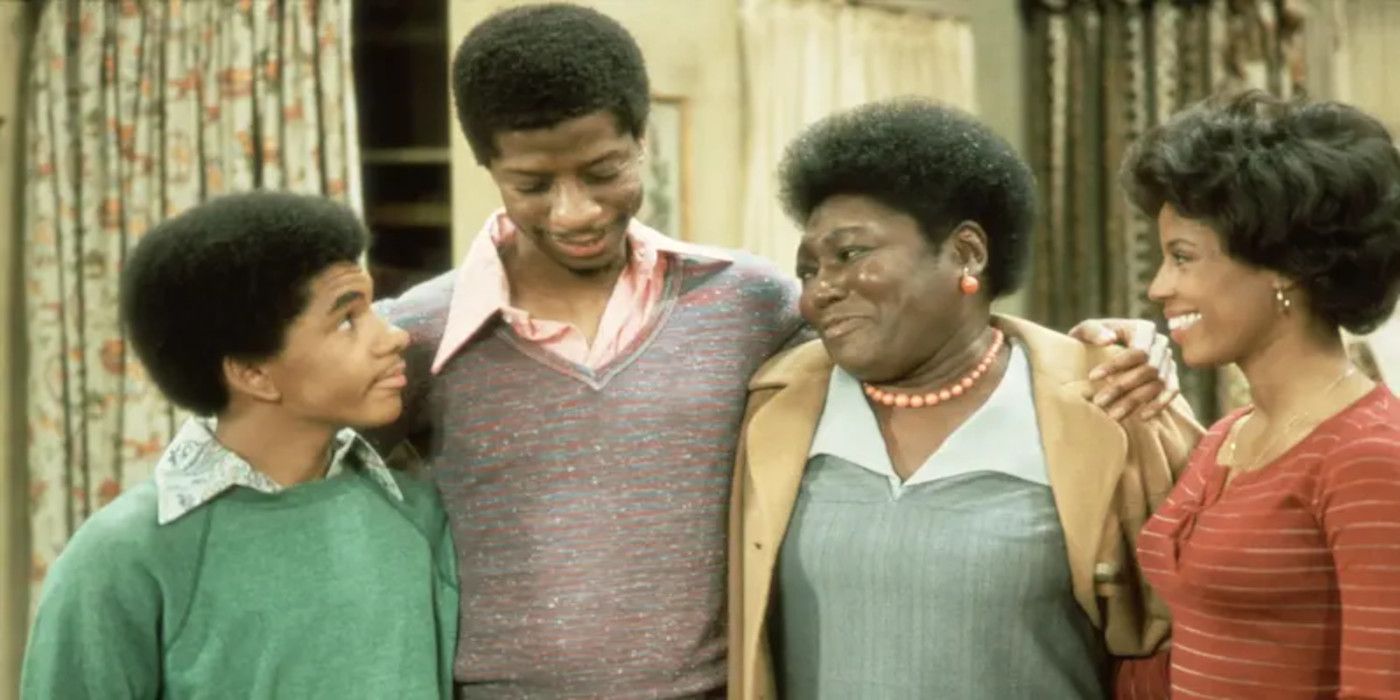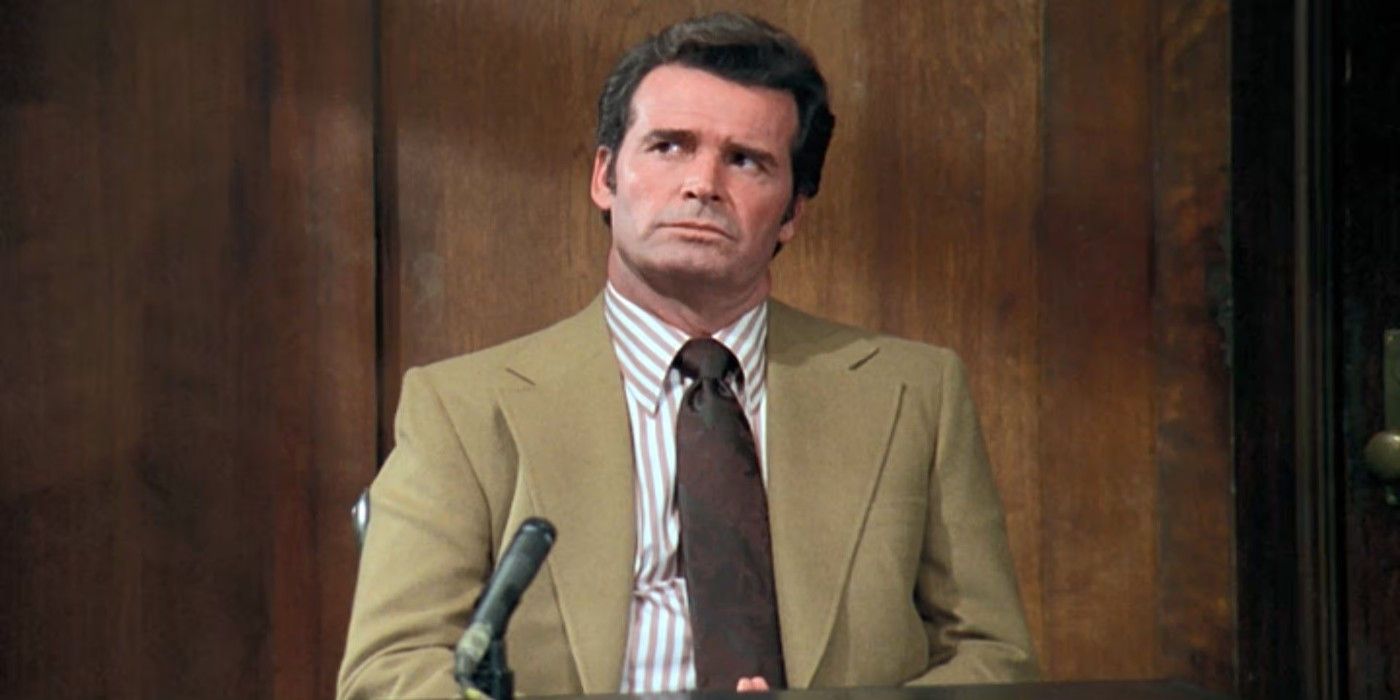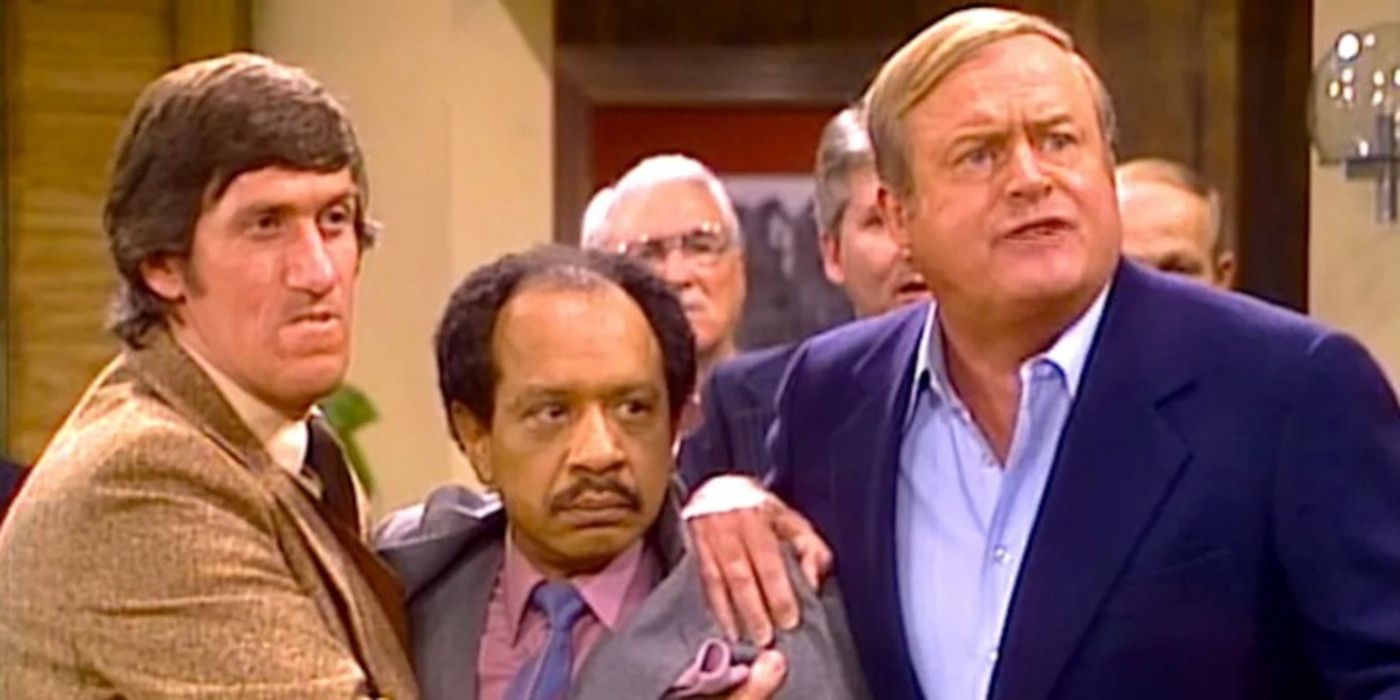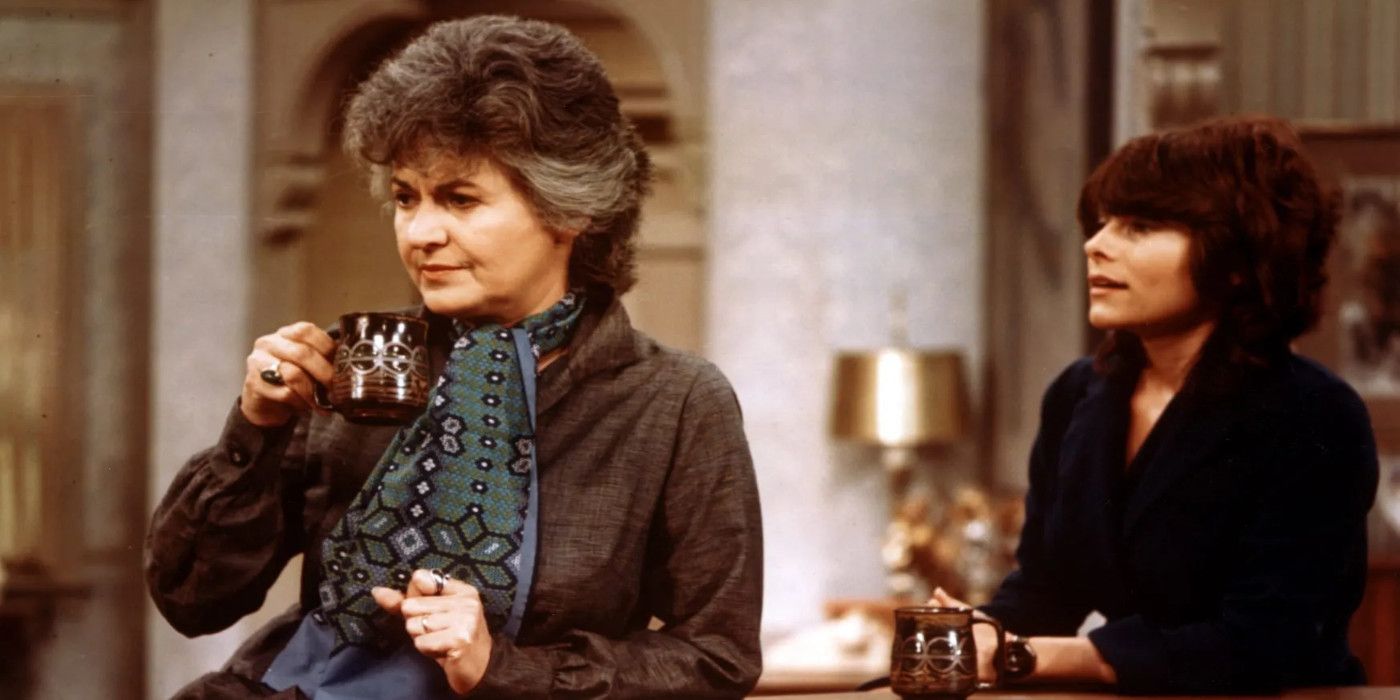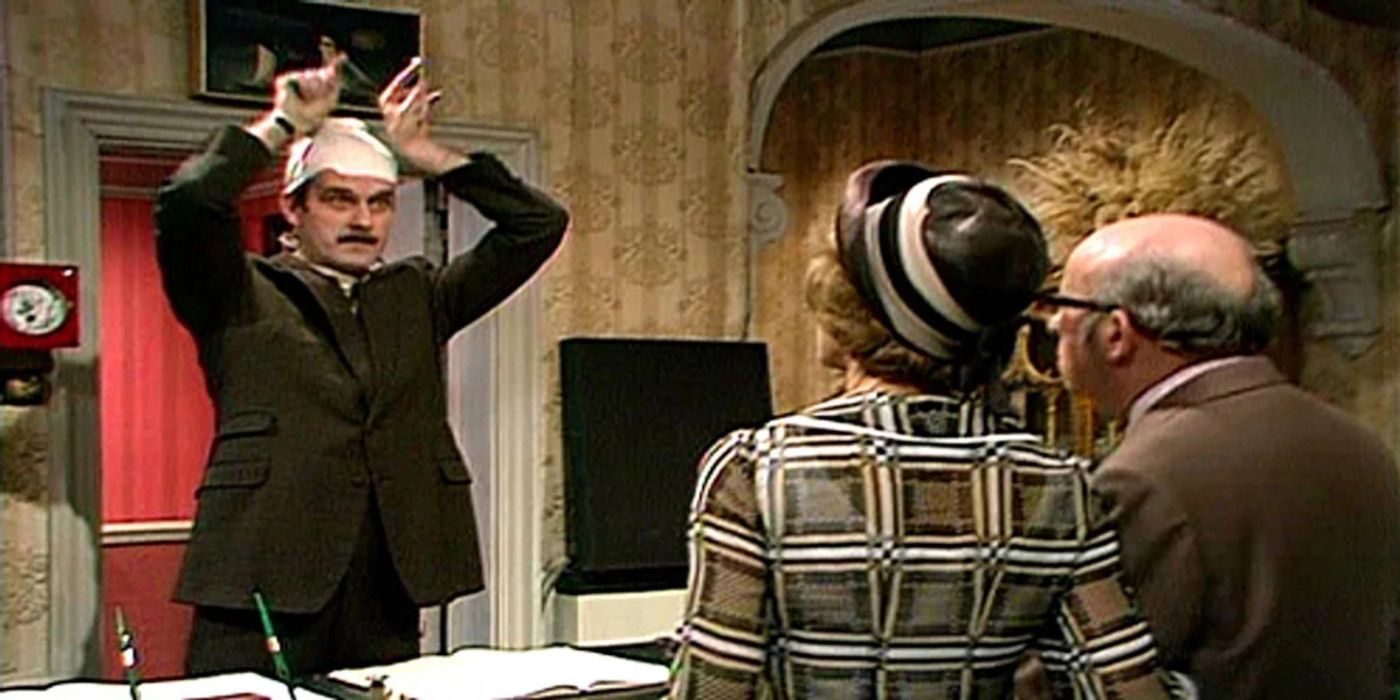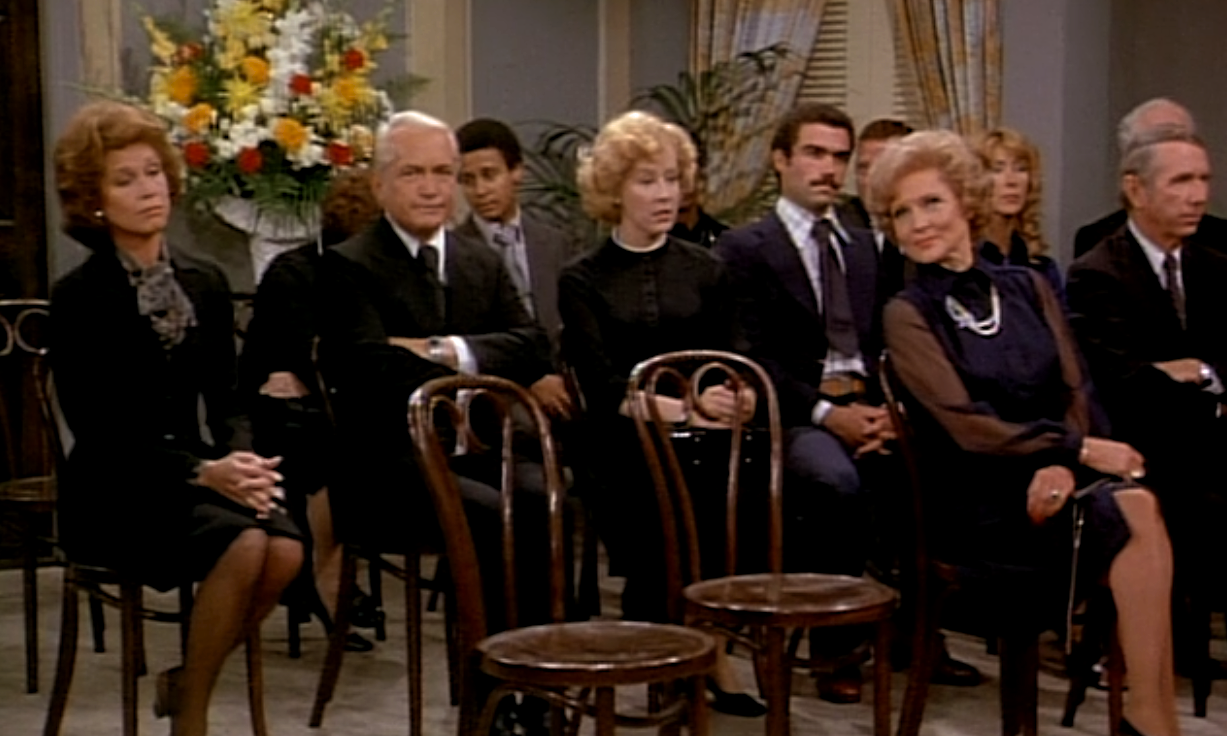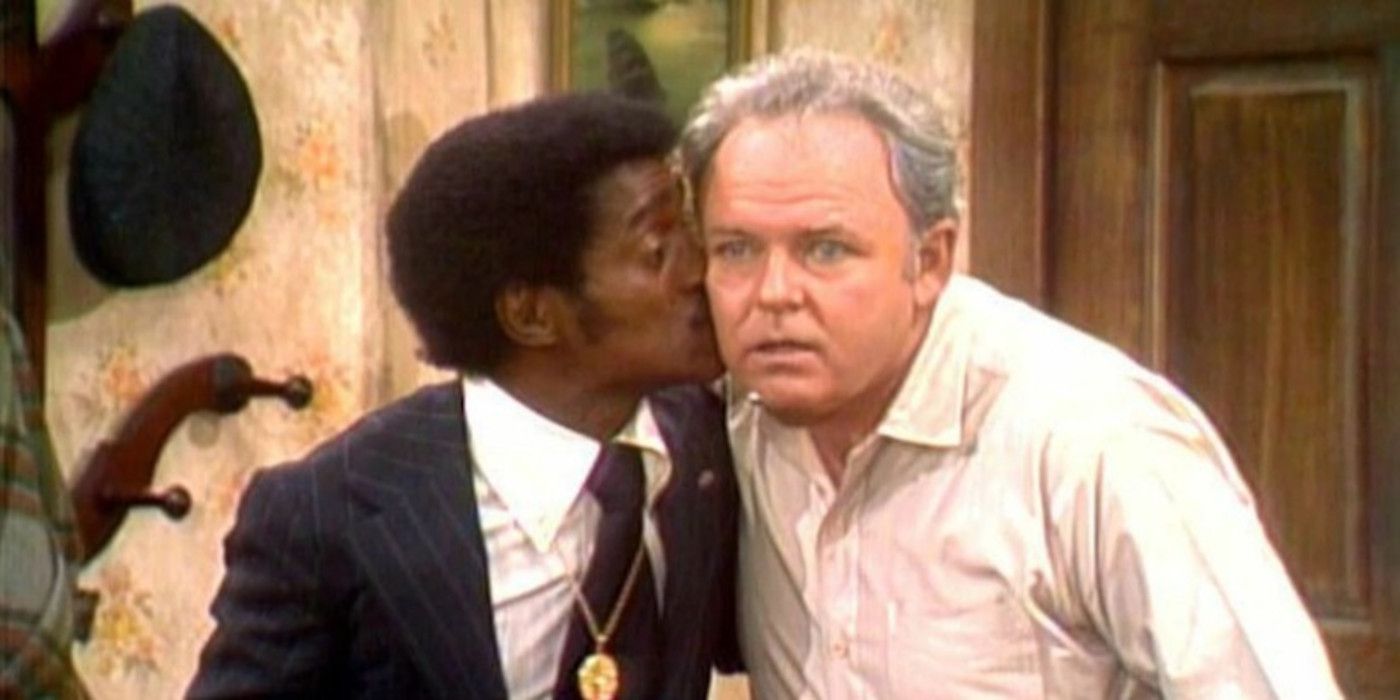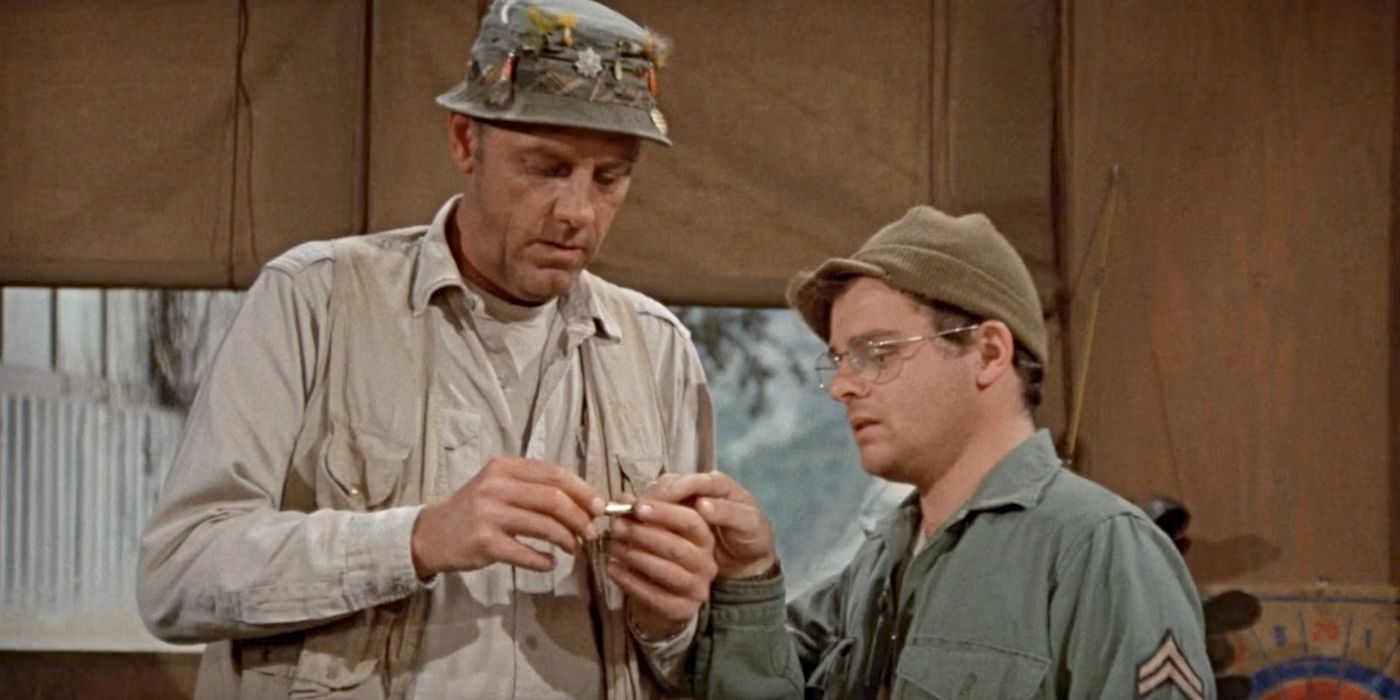10 Most Iconic ’70s TV Episodes, Ranked

The 1970s were a pivotal time for the development of television programming. Whether it was comedies or dramas, the issues affecting millions at home were discussed by the characters on screen, uniting many in the understanding that their problems or fears were shared by all. Through this boom of artistic freedom and cultural awareness, legendary television moments were created.
Whether it was shocking plot twists or daring storylines, the creators and performers united to make must-see moments for audiences to tune in and immediately talk about with their friends and family. The following episodes of television are iconic examples of ’70s television that represent a decade of changing cultures and shifting viewpoints.
10
“The Burnout” – The Waltons
Season 4, Episode 18 (1976)
The cherished home of the Walton family is horrifically damaged in The Waltons episode “The Burnout.” When a fire erupts and consumes much of their home, the Waltons rely on one another to shoulder the loss and manage any guilt about their possible involvement. Despite grief and frustration, the Waltons grow stronger together in the face of an unexpected loss.
The exterior of the Walton family home was a representation of warmth and safety, so for viewers to see it on fire was a troubling image. The house fire was a surprising and emotionally impactful moment for the fictional family and the viewers who had developed a connection with the characters. The Waltons faced challenges throughout the first four seasons, but the loss of their home would push the family to their limits as they were forced to move on after losing heirlooms and irreplaceable keepsakes.
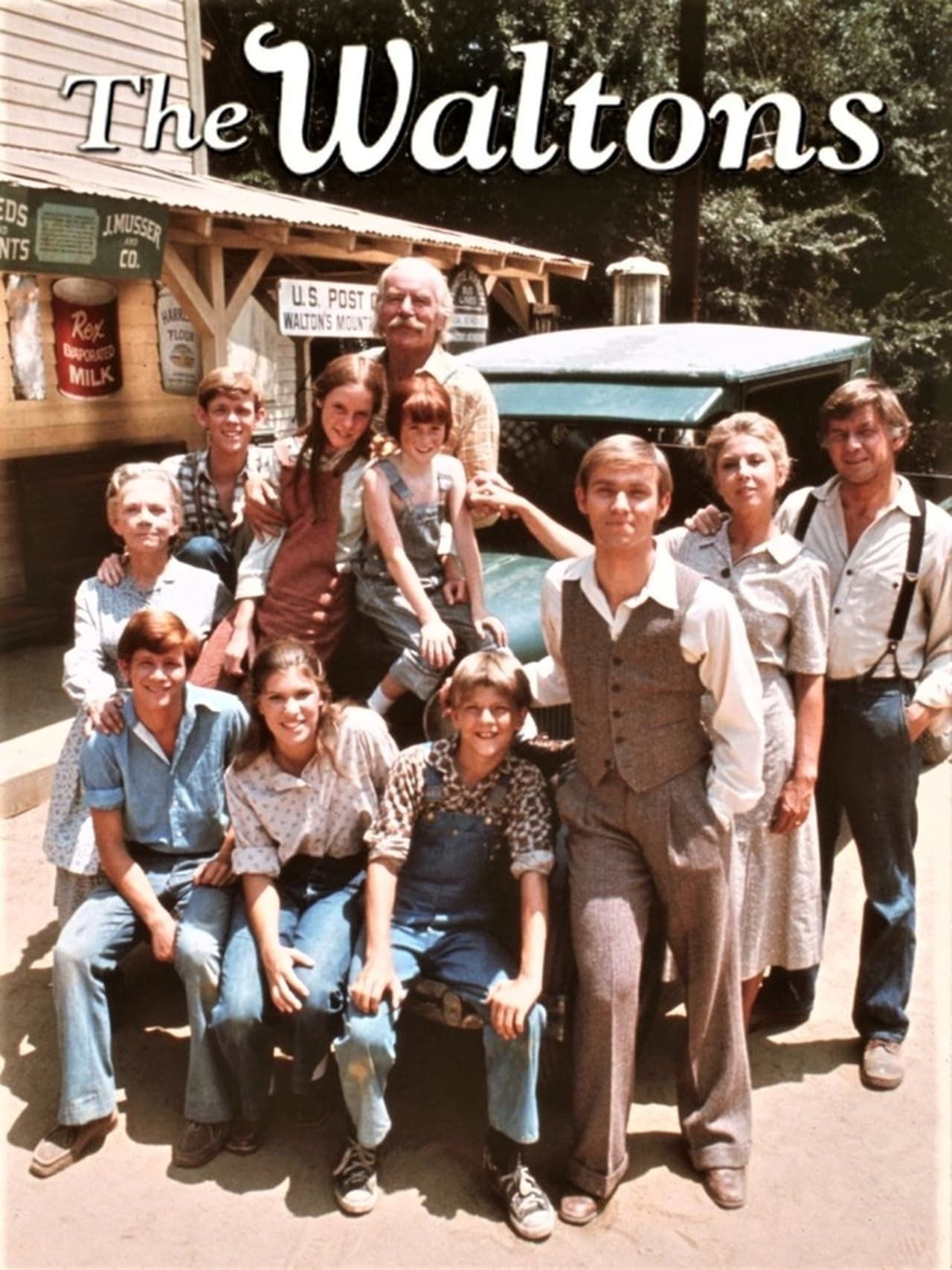
The Waltons
- Release Date
-
1972 – 1980
- Writers
-
Earl Hamner Jr.
9
“The Big Move: Part 1” – Good Times
Season 4, Episode 1 (1976)
The fourth season of the hit comedy Good Times saw the Evans family planning a move from their home in Chicago to Mississippi, where patriarch James (John Amos) had found work. While mother Florida (Esther Rolle) and the children prepared for the move, James was getting things ready in Mississippi. Unfortunately, the move was not to be, as the family discovers James was killed in a car accident during their going-away party.
The reason behind James’ sudden exit from the show stemmed from disagreements about the authenticity of the characters, with Amos voicing his displeasure with the writers. The decision was made to kill off James, releasing Amos from any further involvement with Good Times. The behind-the-scenes strife led to a shocking moment for audiences in the ’70s, who didn’t expect the death of a major character in the popular sitcom.
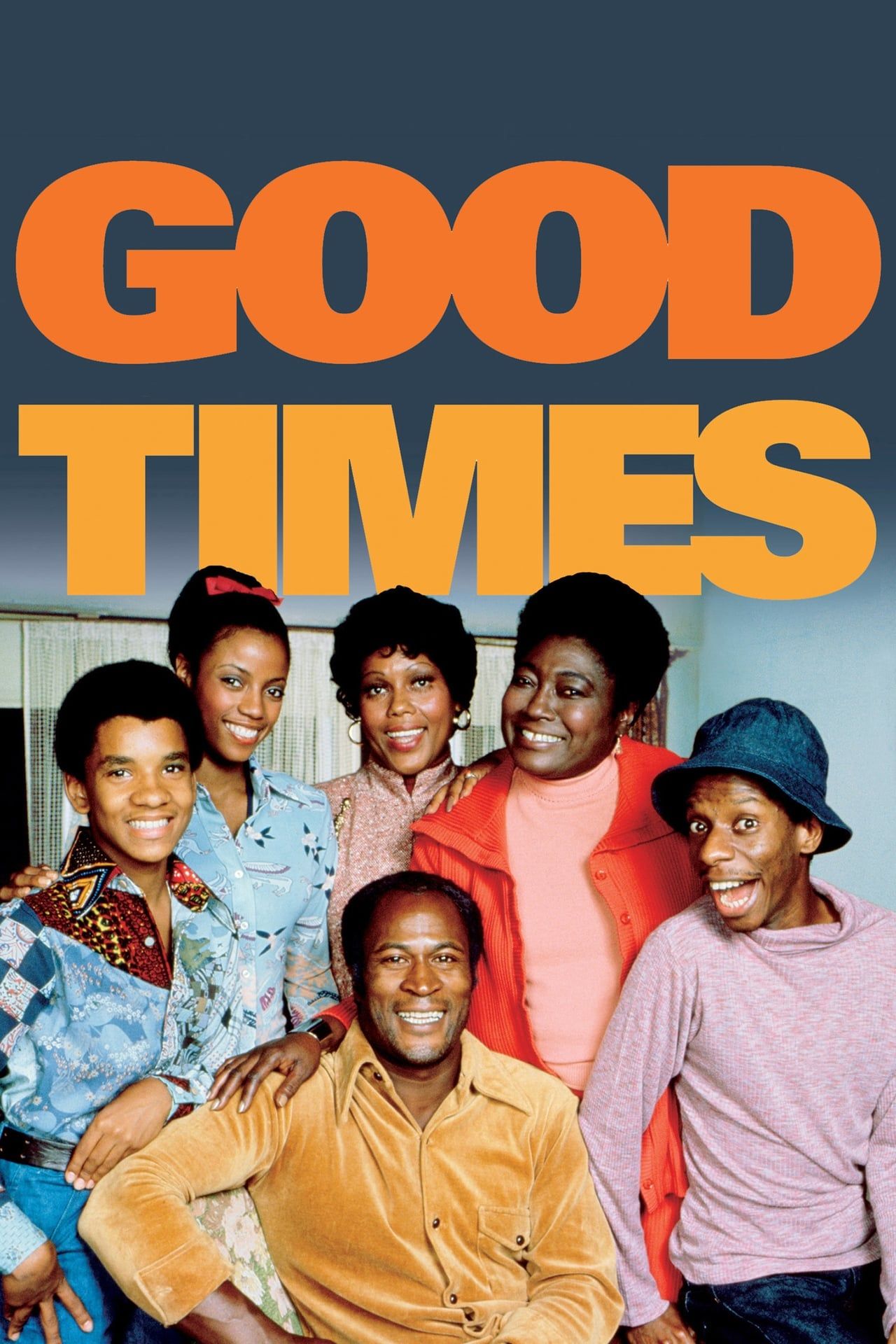
Good Times
- Release Date
-
1974 – 1978
- Network
-
CBS
-

Esther Rolle
Florida Evans
-

-

Ja’net DuBois
James “JJ” Evans
-

Jimmie Walker
James Evans Sr.
8
“So Help Me God” – The Rockford Files
Season 3, Episode 7 (1976)
Jim Rockford (James Garner) found himself in many dangerous situations working as a private investigator in The Rockford Files, but the season three episode “So Help Me God” almost landed him back in prison indefinitely. In the episode, Rockford is subpoenaed to be a witness in a grand jury case where he’s ambushed about speaking to a man he’s never heard of. When Rockford verbally spars with ambitious and aggressive prosecutor Gary Bevins (William Daniels), the down-on-his-luck detective lands in jail charged with contempt of court.
Rockford is typically at odds with the authority figures, and possibly never more so than when he’s forced to defend himself for actions he knows nothing about.
Rockford is typically at odds with the authority figures, and possibly never more so than when he’s forced to defend himself for actions he knows nothing about. “So Help Me God” was a darker episode of The Rockford Files that sees Rockford nearly die while unraveling a mystery, often from the confinement of a prison cell. It’s one of the best episodes of the series, showing how resourceful and strong-willed Rockford is, while also showing the dangers of unchecked power within the judicial system.
7
“Sorry, Wrong Meeting” – The Jeffersons
Season 7, Episode 14 (1981)
A memorable episode of The Jeffersons came in the sitcom’s seventh season when a new tenant in George’s (Sherman Hemsley) building attempts to establish a KKK presence among the neighbors. Tom (Franklin Cover) has his apartment broken into, and when he agrees to attend a meeting organized by a new neighbor, he thinks the topic will be about solutions to the recent crime wave, not realizing it’s a Klan meeting. When George shows up at the meeting due to Tom’s urging, he has a confrontation with the Klan representative until a heart attack causes George to perform CPR on his aggressor.
“Sorry, Wrong Meeting” manages to address racism in a way that fits naturally into the lives of the Jeffersons, while also continuing to deliver well-timed and effective humor. The series of misunderstandings that led George to sit down at a KKK meeting each landed with comedic gusto, a task that would seem impossible to accomplish. George often looked frustrated or agitated, but to sit tired and disgusted after saving a bigot’s life wordlessly relayed the toll racism took even after achieving success as a businessman.
6
“Maude’s Dilemma” – Maude
Season 1, Episodes 9 and 10 (1972)
The sitcom Maude became known for its sarcastic wit, but early on, the sitcom garnered attention by having something to say about abortion. In the two-part storyline, “Maude’s Dilemma,” Maude (Bea Arthur) finds out she’s pregnant and struggles to decide whether to keep the unexpected baby. After much discussion and thought, Maude and her husband Walter (Bill Macy) decide to get an abortion, which had recently become a legal operation.
Tackling abortion in a sitcom during the ’70s would always be a bold move, but to do so in the early stages of the show’s first season is especially striking. By having the characters in Maude discuss and opt for an abortion, the series lost its advertisers, and many CBS affiliates outright refused to air the episode. The Norman Lear-created show did not cave under pressure, and in doing so, they created one of the most iconic episodes of television in the ’70s.
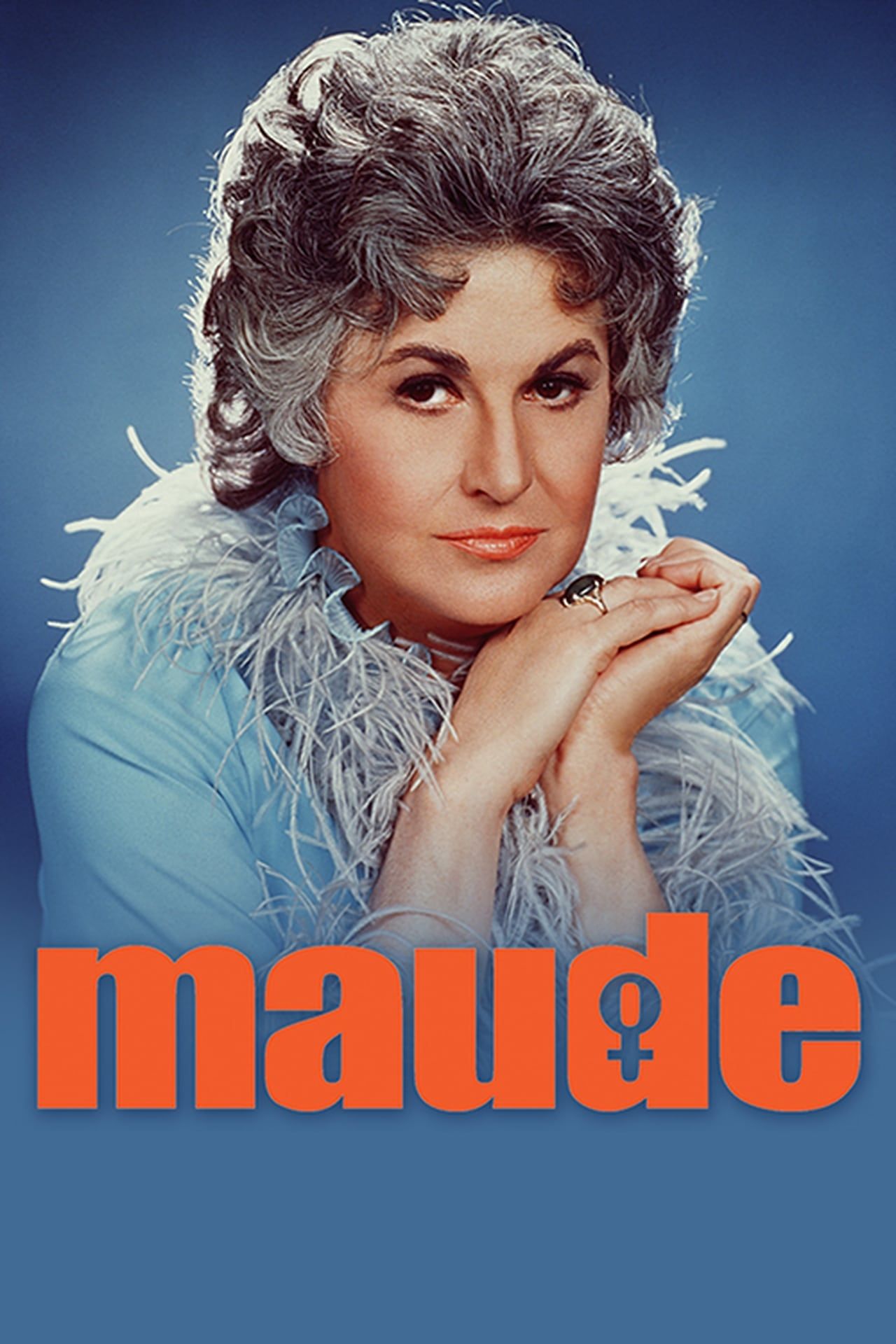
Maude
- Release Date
-
1972 – 1978-00-00
- Network
-
CBS
-

Beatrice Arthur
Uncredited
-

-

Adrienne Barbeau
Walter Findlay
-

5
“The Germans” – Fawlty Towers
Season 1, Episode 6 (1975)
In the classic episode of Fawlty Towers, “The German,” Basil (John Cleese) is left to run the hotel by himself while his wife, Sybil (Prunella Scales), has surgery for an ingrown toenail, leading to an escalating series of unfortunate incidents. A fire drill quickly turns into the real thing, sending Basil to join Sybil in the hospital with a concussion. Ignoring the doctor’s orders to rest, Basil leaves the hospital in a disoriented state in enough time to insult his German hotel guests in a number of ways.
“The Germans” is a perfect example of Fawlty Towers running on all cylinders, with a lethally funny combination of biting wit and masterfully performed physical comedy. With jokes packed into every minute of its runtime, “The Germans” is a near-flawless half hour of televised comedy that serves as proof of why Cleese is considered a legendary comedic performer.
4
“Chuckles Bites the Dust” – The Mary Tyler Moore Show
Season 6, Episode 7 (1975)
The Mary Tyler Moore Show always delivered solid laughs in every episode, but fans and critics are quick to cite “Chuckles Bites the Dust” as one of the sitcom’s best entries. When the children’s show host, Chuckles the Clown, dies in a freak elephant accident, the crew of television station WJM can’t help but persist with jokes at the dead clown’s expense, with only Mary (Mary Tyler Moore) disapproving. However, at Chuckles’ funeral, Mary finds herself laughing uncontrollably, much to the surprise of her co-workers.
“Chuckles Bites the Dust” won the Emmy for Outstanding Writing in a Comedy Series and is considered a high point of the sitcom. The episode tastefully explores the fear of death and the management of that fear by showcasing the spectrum of reactions that accompany a sudden loss. The writing is reliably strong in the episode, but Moore’s strained face as she attempts to hold back laughter at the clown’s funeral is comedic brilliance.
3
“Sammy’s Visit” – All in the Family
Season 2, Episode 21 (1972)
The Bunker clan hosts a beloved entertainer in the classic All in the Family episode “Sammy’s Visit.” Archie’s (Carroll O’Connor) effort to make extra cash as a cab driver has him cross paths with Sammy Davis Jr., a fact he immediately brags about when arriving home. However, his family will also be able to brag about meeting him after a forgotten bag causes Davis Jr. to wait for its retrieval at Archie’s house, where they kill time with hilariously awkward conversation.
Every moment between O’Connor and Davis Jr. is electric, and that’s largely due to their shared history. Davis Jr. and O’Connor were long-time friends who wished to work together on the show, but there was initial hesitation to include a notable guest star without breaking the grounded reality of the fiction. By creating a plotline where Archie drove a cab part-time, they were able to introduce Davis Jr. as himself and create one of the most iconic episodes in television history.
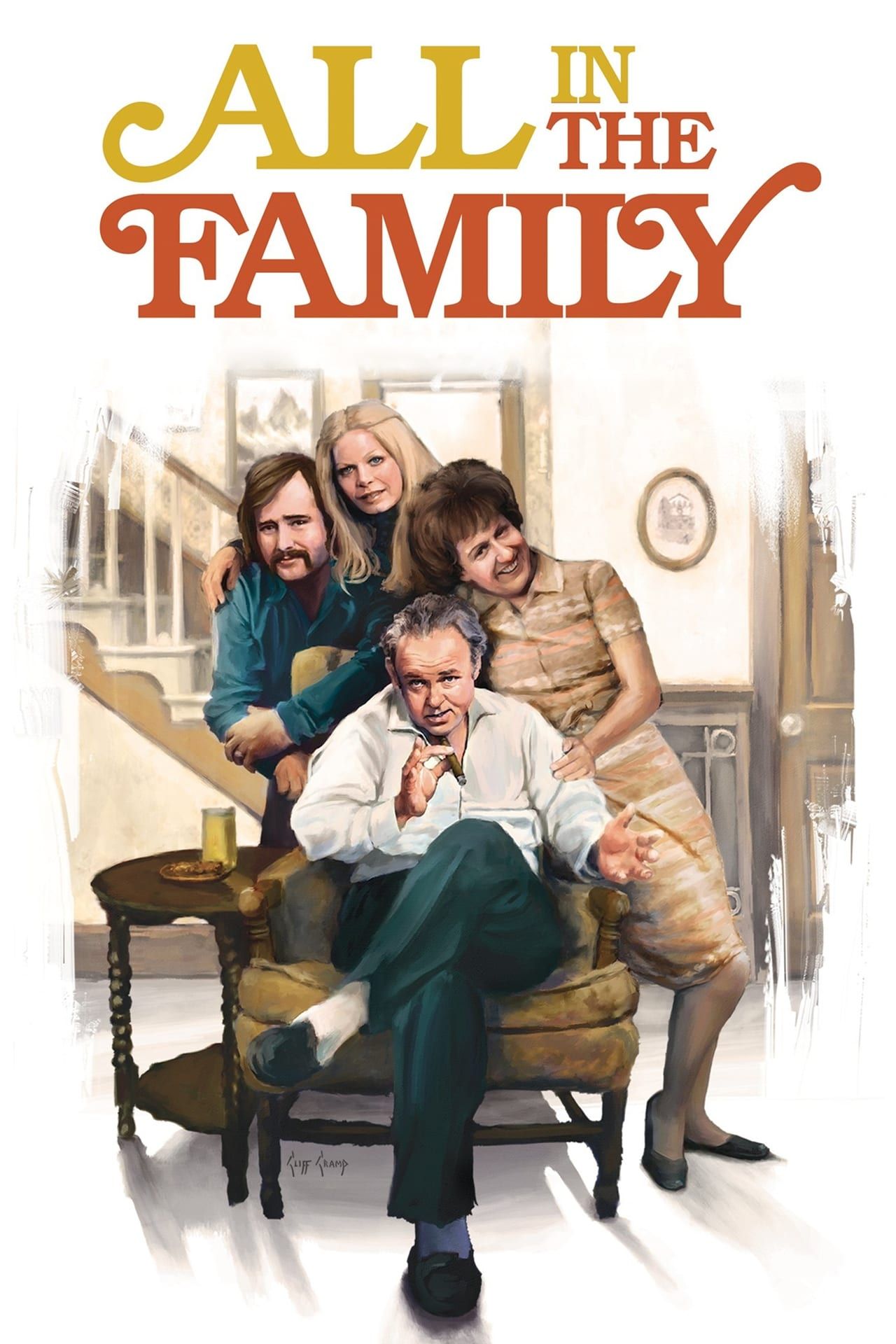
All In The Family
- Release Date
-
1971 – 1978
- Network
-
CBS
-

Carroll O’Connor
Archie Bunker
-

Jean Stapleton
Edith Bunker
-

Sally Struthers
Gloria Stivic
-

2
“Part VIII” – Roots
Season 1, Episode 8 (1977)
One of the most important events in ’70s television was the eight-episode miniseries Roots, which aired on ABC. Based on the novel Roots: The Saga of an American Family, by Alex Haley, Roots followed an African American family over multiple generations as their lineage endured slavery and the Civil War before claiming freedom.
The finale for Roots was one of the most-watched episodes of any scripted programming on television, with millions of households tuning in to see the end of the iconic ’70s miniseries. Roots was unflinching in its portrayal of the horrors of slavery and the cruelty of humankind, pushing a dialogue about racism and inequality to the forefront of ’70s culture. The miniseries helped demonstrate that the medium of television could be more than simple entertainment; It could also have a positive impact on educating viewers on history and other cultures.
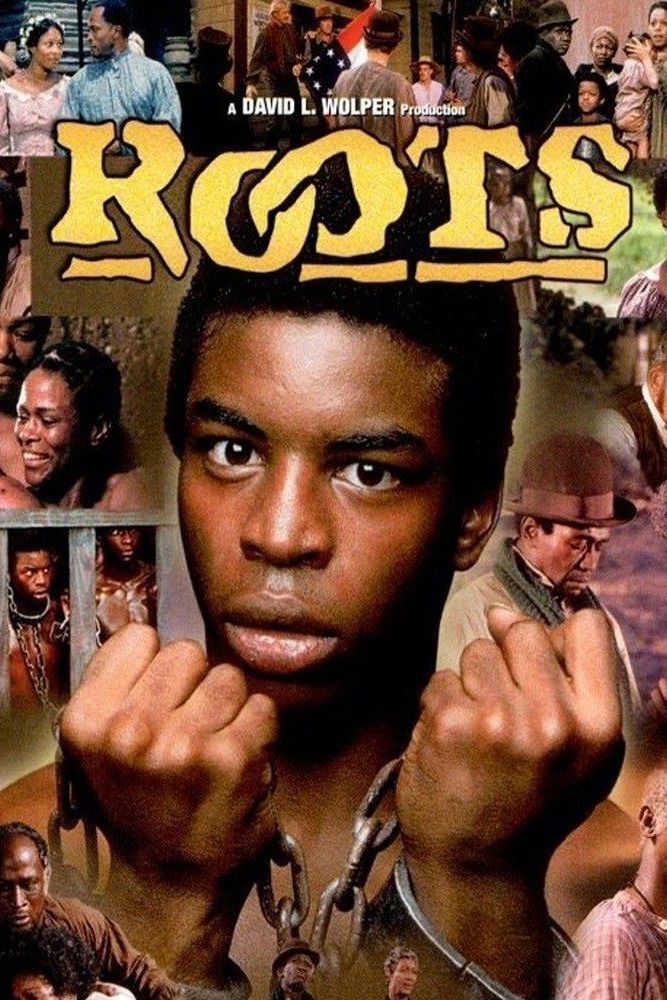
Roots
- Release Date
-
1977 – 1976
- Network
-
ABC
1
“Abyssinia, Henry” – M*A*S*H
Season 3, Episode 24 (1975)
The medical staff in M*A*S*H frequently deal with trauma and grief, but when Lt. Col. Henry Blake (McLean Stevenson) receives word that he’s going home, a bittersweet celebration is in store for the men and women. With only days before Blake is set to leave, he’s able to spend time with Hawkeye (Alan Alda) and shares a warm moment with Radar (Gary Burghoff) before saying his goodbyes. However, the farewell becomes of a different nature when it’s revealed that Blake’s plane was shot down, and he was killed before making it home.
The exit of Blake would have been emotional in any capacity, as he was a well-liked character on the show, and his send-off is frequently touching, especially in the moments where he calls his family to tell them he’s coming home. Even for those who know the plot twist is coming, the announcement of his plane being shot down is a gut punch that makes “Abyssinia, Henry” one of its finest episodes. The stunned silence from the surgeons speaks volumes, and the weight of the episode is felt for days after watching it.

M*A*S*H
- Release Date
-
1972 – 1983-00-00
- Network
-
CBS
-

-

Loretta Swit
Margaret Houlihan
